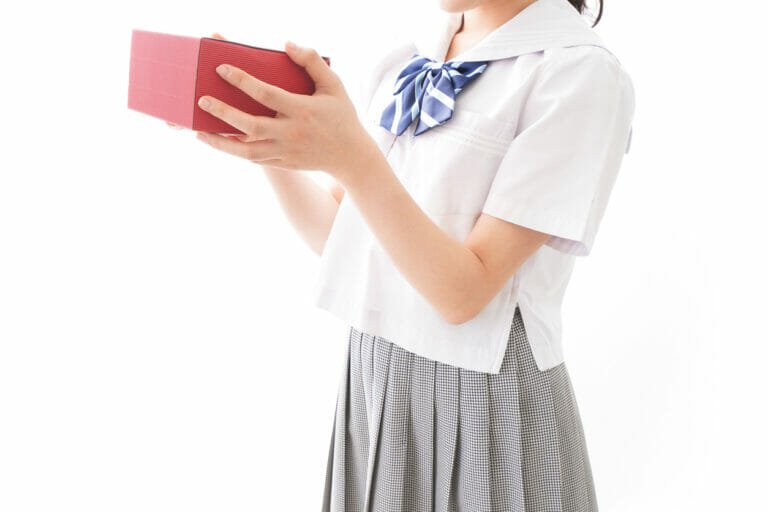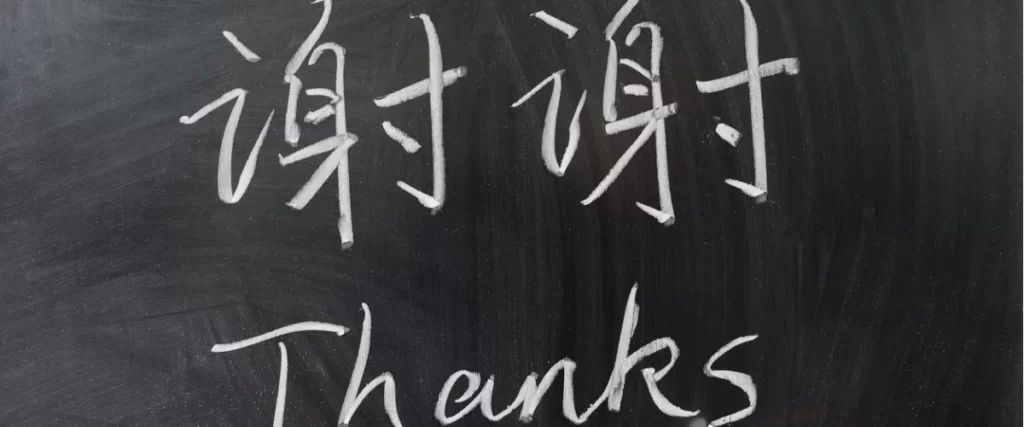Cultures differ from one country to another, a simple fact of life. Moreover, culture influences everything from communication styles and idioms to technical terms and jargon, relationship maintenance, and numerous other areas critical to communicating well in Chinese.
In Chinese culture, expressing gratitude and giving praise is done entirely differently from the West. For most Chinese people, modesty and humility are essential characteristics to have in their lives. Knowing how to express gratitude in Chinese demonstrates a thorough understanding of, appreciation for, and respect for Chinese cultural traditions.
Different languages have different ways of communicating, as they are influenced by the local culture. Chinese culture values reverence and politeness. On the other hand, in Western culture, there is often a more relaxed way of communicating with family members, the elderly, or our manager.
Here are some examples of how to express gratitude and thanks in Chinese in different situations, to help you communicate better with native speakers of Chinese. We have added pinyin and Chinese characters.
Table of Contents
ToggleCOMMON WAYS TO EXPRESS GRATITUDE AND THANKS IN CHINESE
1 xiè xie 谢谢 – thank you
A common and casual way to express gratitude in the Chinese language is to say xiè xie 谢谢. The first syllable is pronounced with a fourth tone, whereas the second syllable has a neutral tone and a light pronunciation.
Here is a situation where you can use the expression:
Nǐ zuò de hóngshāo ròu zhēn hào chī.
你做的红烧肉真好吃。
The braised pork you have made is really delicious.
You can respond in an informal way with the following:
Xiè xie, xǐhuān dehuà wǒmen xià cì kěyǐ zuò duō diǎn.
谢谢,喜欢的话我们下次可以做多点。
Thank you, we can make more next time if you like it.
Alternatively, you can say:
Xiè xie, wǒ kàn shìpín xuéxí de.
谢谢,我看视频学习的。
Thanks, I watched videos and learned it.
2 duō xiè 多谢 – many thanks, thanks a lot
This phrase is used relatively casually as a basic way of saying xiè xie 谢谢. It is slightly more formal and means “thanks a lot”.
Let us say your Chinese friend helped you to find a job. In this particular situation you could say:
Duōxiè nín gěi wǒ gōngzuò jīhuì.
多谢您给我工作机会。
Thanks a lot for giving me a job opportunity.
3 fēi cháng gǎn xiè 非常感谢 – thank you very much.
Even though you can make use of xiè xie 谢谢, there are more polite phrases that can be used in many situations daily. The phrase fēi cháng gǎn xiè nǐ! 非常感谢你! “Thank you very much!” is usually said when you owe someone a debt of gratitude that is difficult to repay.
4 xiè xie nǐ 谢谢你 – thank you (polite)
Adding nǐ 你 after xiè xie 谢谢, is viewed as a more polite Chinese phrase, whereas it is appropriate to add nín 您 – you (formal) when speaking to someone elderly, someone in a respected position, or customers.
For example:
Xiè xie nǐ bāng wǒ bān jiā.
谢谢你帮我搬家。
Thank you for helping me to move (housing).
5 xiè xie dà jiā 谢谢大家 – thanks everyone, thank you all
The expression xiè xie dà jiā 谢谢大家 is typically used when speaking to a group of people. It is often used in formal settings such as banquets, etc. for a toast, a business meeting, a wedding, or a large group setting.
6 má fan nǐ le 麻烦你了 – I’m sorry to bother you.
If someone goes out of their way to help you, the expression má fan nǐ le 麻烦你了 “Sorry to bother you” is a great phrase to use.
7 gǎn xiè 感谢 – thanks
To show appreciation or gratitude, you can also use gǎn xiè 感谢.
You can say:
Fēi cháng gǎn xiè nín de yì jiàn.
非常感谢您的建议。
I really appreciate (thanks for) your opinion.
You can also say tài gǎn xiè … le 太感谢…了 “I really want to thank someone/you”, expressing how incredibly grateful you are.
8 biǎo shì gǎn xiè 表示感谢 – I want to express gratitude, show one’s thankfulness
To explain to someone that you want to “express gratitude”, you can say biǎo shì gǎn xiè 表示感谢.

GIFT-GIVING IN CHINA
Gift-giving is an essential part of relationship building and showing appreciation for someone. You do not want to give something too expensive, as you do not want it to look like you are bribing someone. Choose something unique for the receiver, for example, some local products from your own country.
Thus, giving gifts and how you give the gifts are seen as very important in China. When you give gifts, you should use both hands when giving and receiving gifts. It is good to treat the present as if it is “the person you will give it to”. What do we mean by this? Hold it carefully, and give and receive the gift respectfully with both hands while looking the other person in the eyes. The receiver of the gift expresses thanks and suitable Chinese phrases as a way of ending the “gift ceremony”.
If this is your first time in China, you should note that in China it is common to decline a gift before accepting it to show humility and be polite. It is also common to wait until the gift’s giver has left before you open it, as you do not want to appear greedy. When giving each other gifts, the key is to do something nice to someone else. There is an unspoken obligation in this situation that says, “this time I do something nice for you, next time you will do something nice to me”.
COMMUNICATING WITH A NATIVE CHINESE SPEAKER: OTHER WAYS TO EXPRESS GRATITUDE AND THANKS IN MANDARIN CHINESE
9 Nǐ zhēn bāng le wǒ dà máng. 你真帮了我大忙。You really helped me a lot.
In Chinese culture and communication, modesty is highly regarded, and it is improper to express gratitude when someone compliments you. In the West, saying “thank you” is simply a polite way of acknowledging a compliment; in contrast, saying “thank you” directly in Chinese (as a way of admitting “I am great!”) is considered egotistical in Chinese culture.
When someone compliments you, it is common to respond with one of the following phrases, rather than accepting the praise straight away:
10 nǎ li nǎ li 哪里哪里 – literally this means Where? Where? The meaning is: You do flatter me, but I am not that great
Although the literal translation of nǎ li nǎ li 哪里哪里 is “Where? Where?”, the actual meaning behind it is “Where can you see that I am so great” or “I am not so great”. While we in Western culture are taught to brag about our accomplishments, being humble is essential in Chinese culture.
As we have already pointed out, Chinese culture is well-known for its preference for modesty and humility. Rather than simply accepting a compliment with a simple xiè xie 谢谢 “thank you”, it is much more appreciated in China when the compliment is deflected. One way to deflect praise while valuing the feedback is to say méi yǒu méi yǒu 没有没有 “no, no (that is not correct)”.
Here are some other phrases that follow the pattern of being humble and not bragging.
11 yī bān, yī bān 一般,一般 – not good, not good (Oh, I’m just so-so)
You could also say hái hǎo, hái hǎo 还好,还好 “Not that great, not that great. (I am not that great)”. Or you could say bù, bù, bù 不,不,不 “No, no, no…(I am not that great)”.
When you give and receive compliments in Chinese, you might say
Compliment:
Nǐ de máo bǐ zì xiě dé hěn hǎo.
你的毛笔字写得很好。
Your calligraphy is very good.
You can reply like this:
Nǎlǐ, nǎlǐ, wǒ cái kāishǐ xué.
哪里,哪里,我才开始学。
Where, where, I just started to learn.
Or you can say:
Bù, bù, wǒ xiě dé méi nàme hǎo.
不,不,我写得没那么好。
No, no, I do not write that well.
12 shì ma 是吗? / zhēn de ma? 真的吗?- Really? (Do you think that I am that great?)
Another common and easy way to reflect praise is by using the following:
shì ma 是吗? / zhēn de ma? 真的吗?– Really?
Being humble is also a common way of thanking someone indirectly. Let us say someone is complimenting you:
Nǐde qúnzi hěn hǎokàn.
你的裙子很好看。
Your dress is very nice.
Reply:
Shì ma? Wǒ hái dānxīn bù héshì ne.
是吗?我还担心不合适呢。
Really? I was actually worried it was not fitting.
Or you can answer:
Zhēn de ma? xiè xie.
真的吗?谢谢.
Really? Thanks.
13 Hái xíng ba 还行吧 – It is just ok
First, there is a compliment, for example:
Nǐ huàn fǎxíngle? Hěn piàoliang!
你换发型了?很漂亮!
Did you change your hairstyle? Very beautiful!
And then a reply:
Hái xíng ba, zài wǒ jiā lóu xià fàláng nòng de.
还行吧,在我家楼下发廊弄的。
It is just okay. I got it at the hair salon downstairs where I live.
14 hái hǎo ba 还好吧 – It is not that great
First the compliment:
Nǐ huàn fǎxíngle? Hěn piàoliang!
你换发型了?很漂亮!
Did you change your hairstyle? Very beautiful!
You can thank by being humble:
Hái hǎo ba, fǎxíng shī bāng wǒ nòng de.
还好吧,发型师帮我弄的。
It is ok. The hairstylist did it for me.
DO YOU WANT TO LEARN MORE MANDARIN CHINESE OR KNOW SOMEONE WHO WANTS TO?
If you want to learn Mandarin Chinese, feel free to REGISTER FOR A FREE TRIAL CLASS HERE or send me an email (Chen Huimin): huimin@laerkinesisk.no.
We offer private lessons and group classes at all levels, HSK 1-6, children, adults, business. All Mandarin Chinese classes are offered in classrooms or online.
Do you know anyone who wants to learn Chinese? We will give you 500 US dollars as a bonus as a part of our program “Refer a friend – get $ 500” if your friend or others you introduce to us start taking Chinese classes at our school. Register hereif this is interesting for you!








